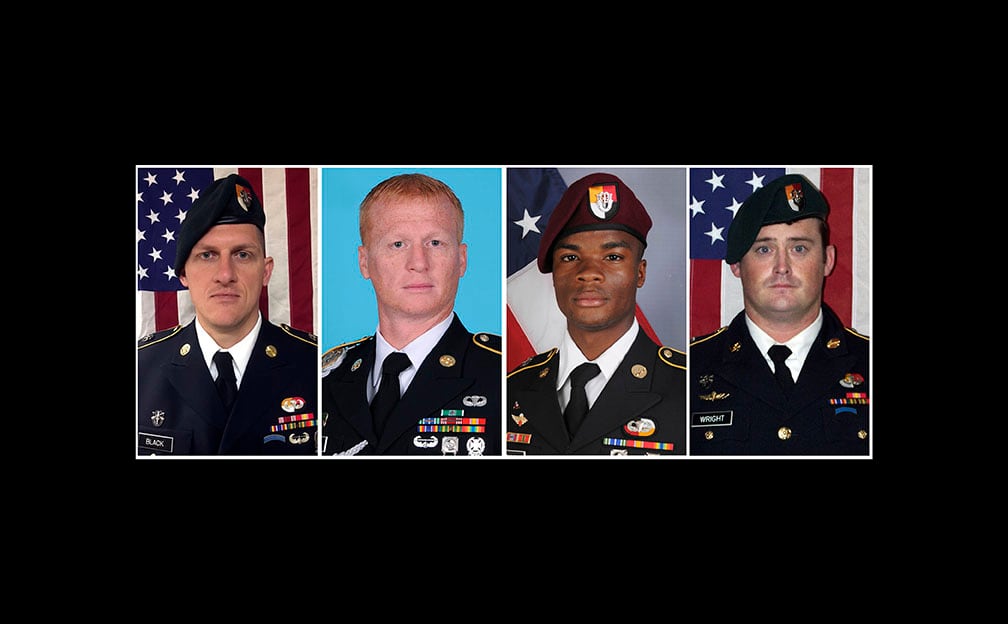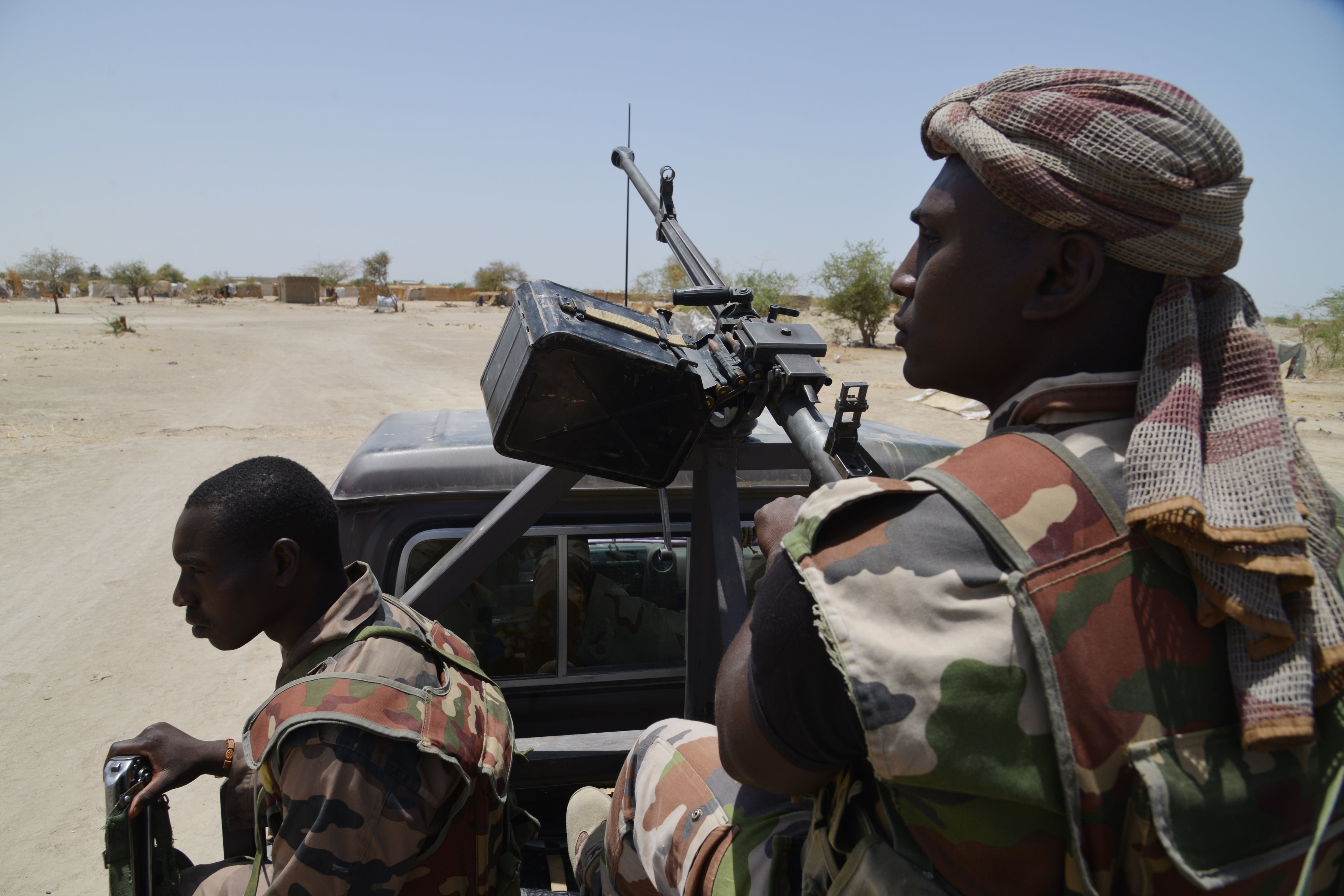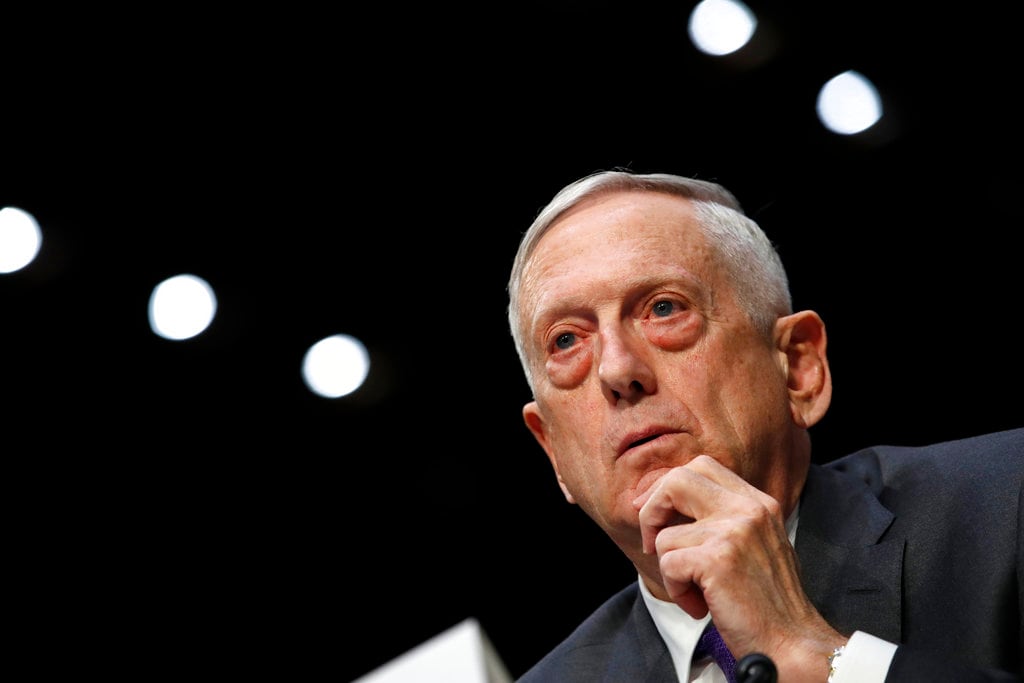WASHINGTON — The U.S. military is addressing problems brought to light after the Niger attack last year that killed four American service members, Defense Secretary Jim Mattis told Congress Thursday.
‘We have found what we believe to be the crux of the problems — not problem but problems — that contributed to this,” Mattis told the Senate Armed Services Committee. “It was not a delegation of authority problem.”
As a result, he said, “we know immediately how to address” those problems.
Mattis also told the committee that the Trump administration will continue providing troops to African nations and there may be temporary increases in forces. He said he expects no significant, permanent increase.
RELATED

Congressional committees have received the 200-page summary on the Niger attack, and victims’ families are being briefed on the investigation results this week. The full report is about 6,300 pages long, including interviews and information gathered across three continents.
Officials have said the report found breakdowns in the mission approval process and other failures. The officials spoke on condition of anonymity to discuss conclusions not yet publicly released.
According to officials, the investigation concludes the Army Special Forces team didn’t get required senior command approval for their risky mission to capture a high-level Islamic State militant. U.S. special operations forces have been advising and working with local troops on the continent, including in Niger, for a number of years.
RELATED

The four U.S. soldiers and four Nigerien troops were killed Oct. 4 about 120 miles (200 kilometers) north of Niamey, Niger’s capital, when they were attacked by as many as 100 Islamic State-linked militants traveling by vehicle and carrying small arms and rocket-propelled grenade launchers. Two other American soldiers and eight Nigerien forces were wounded.
Officials have said no one has yet been punished in connection with the failures linked to the mission and the attack. Once all of the families have been briefed and an unclassified version of the report is made public, any discipline decisions would be made by senior commanders at U.S. Special Operations Command.
Killed in the attack were Staff Sgt. Bryan C. Black, 35, of Puyallup, Washington; Staff Sgt. Jeremiah W. Johnson, 39, of Springboro, Ohio; Staff Sgt. Dustin M. Wright, 29, of Lyons, Georgia; and Army Sgt. La David T. Johnson, 25, of Miami Gardens, Florida. La David Johnson became separated from the others as he fought and ran for cover in the brush. He was gunned down, but his body wasn’t found until two days later.
Black and Wright were Army Green Berets. Johnson and Johnson were not, but were part of the special forces team.









